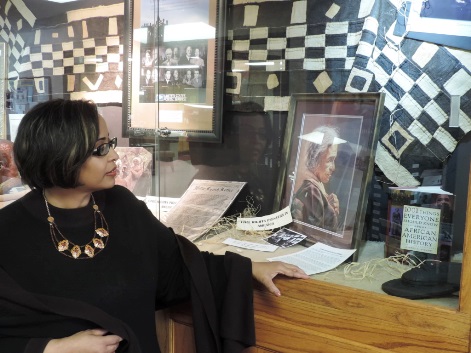by Kelly Rogge
Kansas City Community College has launched a new center known as the Henry M. Louis Center for Transitional Justice to promote global transitional justice, peace, multicultural education and global friendship.
The center will publish a quarterly journal, “The Citizen Diplomat,” convene annual transitional justice conferences and organize a freedom and peace luncheon in the fall semester.
The Henry Louis Center, which was approved by the KCKCC administration earlier in March, will be beneficial to the local community, state, national and international communities.
In the past, the center, acting as an educational institute, had conducted conflict resolution workshops and simulations for high school students and hopes to continue with that tradition. The center also plans to organize hands-on workshops, lectures and conferences for local communities.
“Transitional justice is concerned with how individuals, governments and societies deal with the unpleasant past,” said Ewa Unoke, associate professor of political science at KCKCC and coordinator of the Henry project. “Transitional justice deals with such issues as truth telling, punishment, pardon, accountability, healing, catharsis, reparative justice, restorative justice, reconciliation, national recovery, truth and reconciliation commissions and the International Criminal Court.”
The center’s new project, “Transitional Justice and Counter-Terrorism: Establishing a Post-Conflict Agenda for Societies in Democratic Transitions” began in February 2014 after 10 KCKCC students participated in the recent National Model United Nations at Harvard University in Boston.
The Louis Center, along with the Student for Global Peace and Ralph Bunche Society, jointly sponsored the trip.
“The Henry M. Louis Center for Global Transitional Justice is a great asset for the KCKCC,” Unoke said. “Our students, will write for the transitional justice journal, take transitional justice classes and conduct researches abroad. KCKCC faculty interested in the theme of transitional justice will have the opportunity to be published and also participate in transitional justice conferences, workshops and researches locally and abroad.”
If grants are approved by the State Department, the new project will bring together journalists, government officials and the community from the United States and Africa. The center will conduct workshops abroad in collaboration with a few KCKCC faculty and students.
“In an age of anger, fear and terrorism, transitional justice is a timely theme in international relations, post-conflict reconciliation and national recovery,” Unoke said. “Professor Henry Louis was a global extrovert who led hundreds of KCKCC faculty on numerous trips worldwide. Our aim is to continue Henry’s legacy by facilitating global links among KCKCC community, governments and human rights communities abroad. We invite individuals and organizations who believe in human rights, peace and reconciliation partnerships to join us.”
Unoke holds a doctorate degree. His major fields of study were international relations and comparative politics. He is a transitional justice and subaltern scholar who is a former Biafra Child soldier and prisoner of war. He has taught for the United Nations Conference on Trade and Development in Liberia at the College of Insurance and Risk management. Unoke has also taught transitional justice at Howard University, Lincoln University and currently at KCKCC.
For more information on the Henry M. Louis Center for Global Transitional Justice feel free to contact Professor Ewa Unoke at eunoke@kckcc.edu or 913-288-7318.

